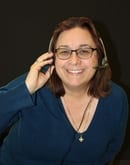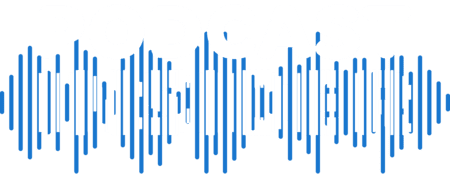Facing the Challenges of Podcasting
 Starting a podcast? Want to start a podcast? Stuck on your podcast? We’ve been there. The barriers to podcasting don’t end, they just change over time. These barriers don’t have to be what stops us. Instead, they can be the place where we start to find our voices, our messages and the unique value we bring to our audience.
Starting a podcast? Want to start a podcast? Stuck on your podcast? We’ve been there. The barriers to podcasting don’t end, they just change over time. These barriers don’t have to be what stops us. Instead, they can be the place where we start to find our voices, our messages and the unique value we bring to our audience.
Many new podcasters have something they want to say to the world. That urge drives them to record those first podcasts and then… they don’t publish. What’s the real barrier to podcasting?
Finding Your Voice and Your Message
Of course, you have to consider what your message is to your audience. But that’s not always what you start with on your podcast.
You may look at your early podcast episodes as your rough drafts. Over time, as you record them and listen to them, you’re going to change something. How you speak or the key message — these will be refined as you press record. You might find that as you prepare, you will make different word choices simply because they’re easier to say. Or inspiration will hit you at a random moment and it changes everything.
We can encourage you to be thoughtful as you get started with your podcast, but frankly, half of the fun of podcasting is discovering your voice and your message as you release your episodes. Don’t wait for those moments to perfect your podcast and then release: They happen spontaneously as you do the work over time.
Finding the Time
There are a couple of things that we podcasters know that other people don’t. The first is that your first one-star review is practically a badge of honor. The second is that making time for a podcast recording/editing session is an ongoing battle.
Experienced podcasters and podcast editors often tell themselves that they are overly critical of how a podcast sounds. If the sound isn’t good enough, we get a bit judgmental – mostly toward our own episodes. We have a standard inside our heads of when the sound is absolutely, utterly perfect. We get crazy trying to eliminate the one-second of throat-clearing in the middle of a sentence, or the doubled word. The rest of the world doesn’t even notice these things, but we do.
This is why the issue of finding the time can thwart a podcast. Setting aside time, especially for the beginner who also may have the thrills of learning to edit and use a new software package, is a commitment of time that grows. And grows. And grows. It takes experience to learn the tips that cut recording and editing time. (Here, I’ll give you one: When you mess up, don’t start over! Just give yourself five seconds of silence and then pick up where you left off. Then when you’re ready to edit, you’ll find those silences will tell you where to edit.)
How do you find time? Sometimes, it means you have to sacrifice another activity, or be creative in how you record.
- Maybe your best time to record is at lunch but you’re at work. Can you get in your car and record in there? (Please, not while you’re driving!) Take your phone out during a walk and record. If you tell your audience where you are, you can create an intimate, personal podcast with birds and crickets and the occasional greeting from a passing biker. Not every podcast needs the perfect silence of a studio.
- If making time for an entire episode is impossible, reconsider how long your podcast episodes should be. If you can’t find the hours to record and edit, adjust your podcast length for now. Or consider producing a segmented podcast. Record short segments and link them together in the editing process.
- Reconsider the frequency of your podcast. Cutting back to biweekly or monthly may be what you need to do for now. If you’re just getting started, you might not have an abundance of audience yet. Ask them if they mind hearing your dog in the background of your recording. They might not. In fact, they might not even notice!
Connect with Your Audience
I listened to an interview podcast. I don’t remember whose podcast it was; I don’t remember the guest. What I do remember is that the guest apologized for the sound of his dog’s toenails on the wooden floor around him. I couldn’t hear anything, even after the guest pointed it out. But it was a connection I felt with that guest. Yes, the situation wasn’t perfect, but he wasn’t going to let that stop him from sharing his message.
The best part of starting with no or little audience is that with a small number of followers, you can connect with them on a level that you’ll never have again. This gives you the chance to build relationships with those who will be your superfans – the ones who will tell others about your podcast. Studies have shown that your audience finds podcasts via word of mouth. When you can connect with them, they’ll tell others. So use this start-up time to share honestly with them.
Use the limitations you’re facing to connect with your audience. Everyone knows what it’s like to struggle for time or space to start a passion project. Maybe you don’t want to share it on the podcast, but do share it on social media or when you’re in the presence of your potential audience. You’ll get great feedback when you’re honest and vulnerable.
Getting Started?
Trying to learn it all before you get started?
Good luck with that.
It’s a lot smarter to learn the basics of podcasting and learn everything else as you need it.
A great place to start is the Blubrry Podcasting Manual and a free month of Blubrry. This free publication lays out the basics of podcasting from the beginning – what you need to think about before you decide to start, the keys of what to do and what to avoid, and how to consider monetization.
We want to help you get started. What do you need to know? What challenges do you face? When the big podcasters make it look so easy, we forget that they often have a crew of 20 behind them in a perfect sound studio. Many of us started in our cars or our closets. We want to help you. Let us know in the comments what challenges you face that might stop you from pressing record.
Read what else Kim had to say about barriers in podcasting,
____________
 Kim Krajci, host of Toastmasters 101 podcast, has been podcasting for 7 years and writing since the creation of the stylus and clay tablets. She also teaches speech and debate and works as a social media manager.
Kim Krajci, host of Toastmasters 101 podcast, has been podcasting for 7 years and writing since the creation of the stylus and clay tablets. She also teaches speech and debate and works as a social media manager.





